Putin
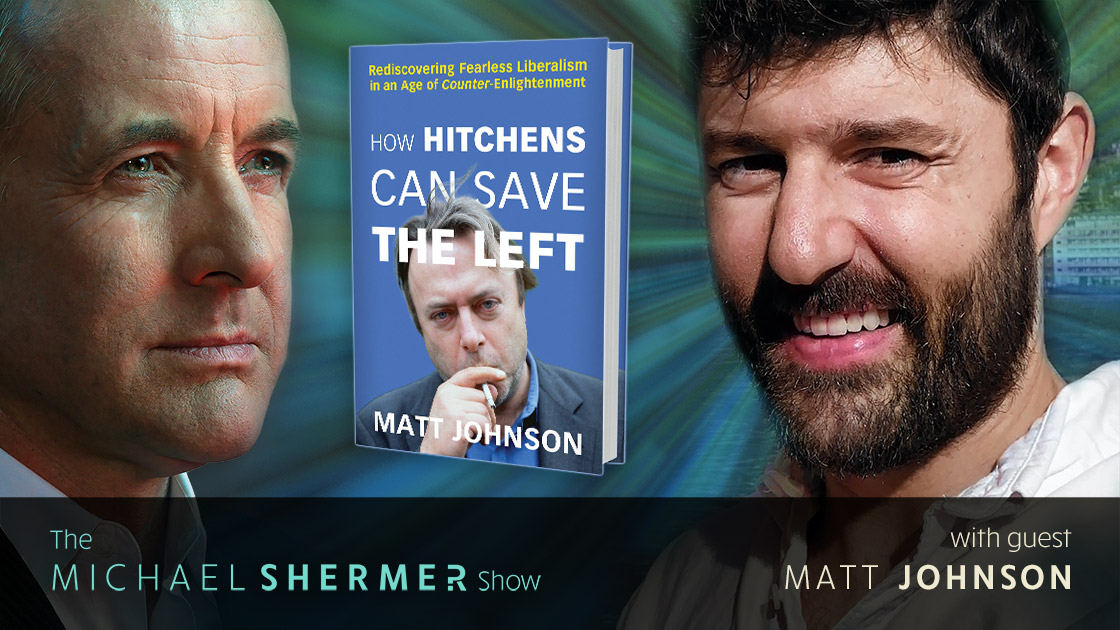
Shermer and Johnson discuss: Hitchens on free expression, identity politics, radicalism, interventionism, authoritarianism, patriotism, internationalism, America and Liberalism, reparations, religion, and death • identity politics • hostility to free speech • why Hitch did not become a neoconservative, warmonger, or imperialist • Enlightenment Liberalism • Trump and the division of the right • Hitchens on the precursors to Trump • Putin and Russian nationalism.
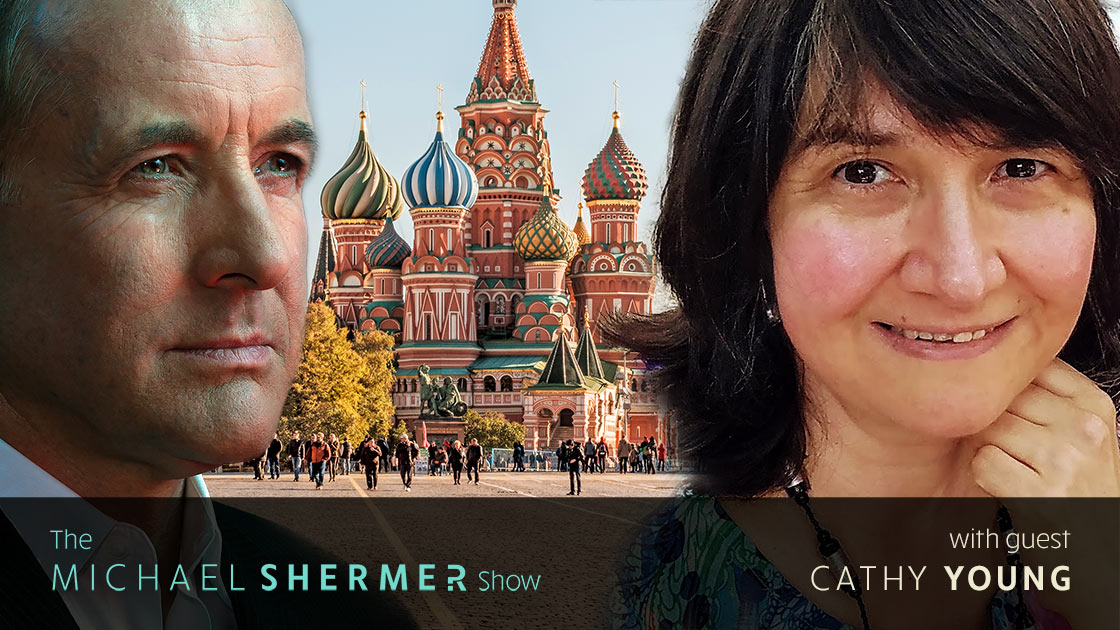
Michael Shermer speaks with Cathy Young, a cultural studies fellow at the Cato Institute. She writes on a wide variety of cultural and political issues, including gender issues (equal opportunity in the workplace, sexual harassment policy, sexual assault and domestic violence law, child custody, etc.), freedom of speech and intellectual tolerance, diversity, education, and perspectives on American history, as well as Russia and U.S.-Russian relations.
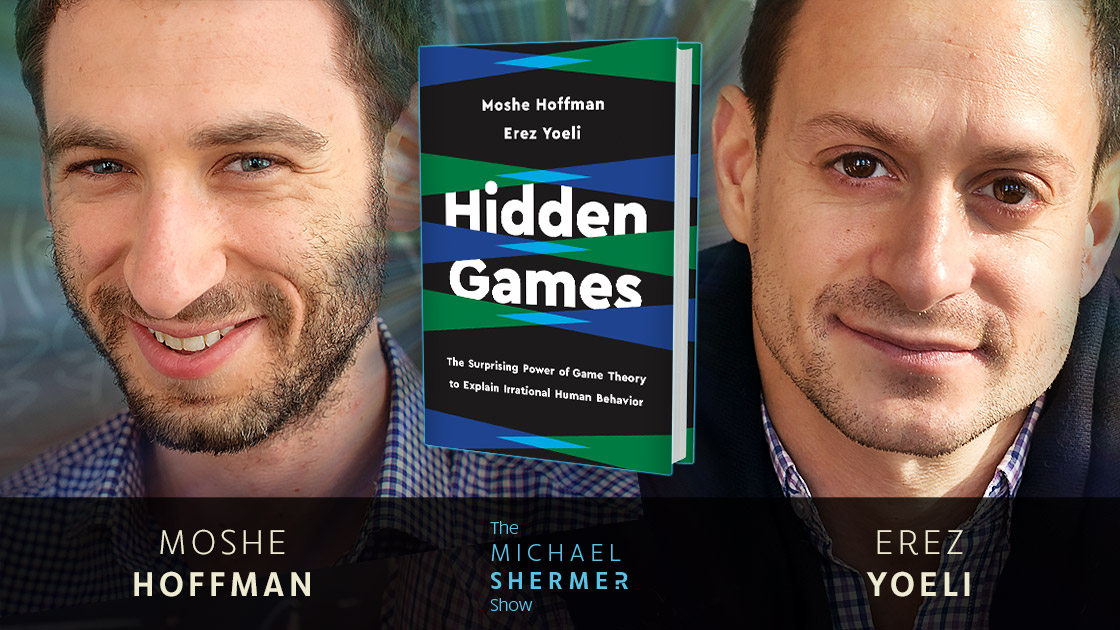
Moshe Hoffman is a research scientist at the Max Planck Institute for Evolutionary Biology whose research focuses on using game theory and models of learning. Erez Yoeli is a research scientist at MIT’s Sloan School of Management, whose research focuses on altruism: understanding how it works and how to promote it.
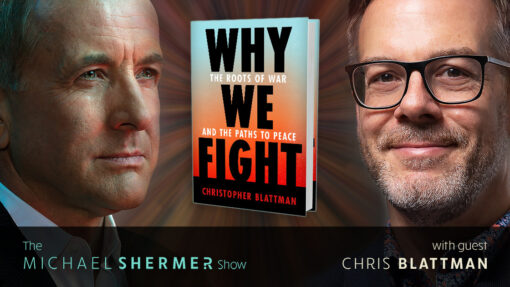
Shermer and Blattman discuss: Putin, Russia, and Ukraine • game theory and violent conflict • 5 Reasons for conflict and war • common elements of conflict • U.S. foreign policy and its consequences • human nature and conflict: are we wired to fight or do environments push us into conflicts? • cooperation vs. competition, and more…
Education reform researcher and advocate Chris Edwards explains the problem with the U.S. public education system and considers possible solutions. PLUS: Michael Shermer speaks with Christopher Blattman about his new book Why We Fight: The Roots of War and the Paths to Peace.
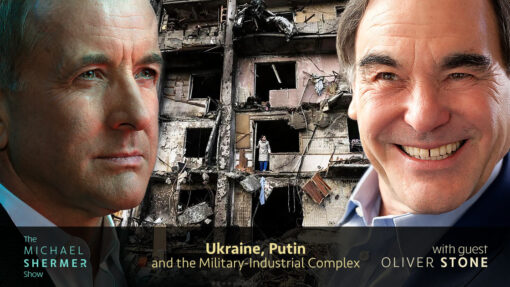
Michael Shermer speaks with Oliver Stone about Ukraine, Putin, and the military-industrial complex.
Mel Konner, in response to Bert Hölldobler’s defense of E. O. Wilson, reinforces the point that Wilson’s defense of Philippe Rushton was done out of concerns about academic freedom; PLUS: Michael Shermer speaks with Oliver Stone about Ukraine, Putin, and the military-industrial complex.
Michael Shermer speaks with Professor of International Relations, Dr. Jacek Kugler, about his Power Transition Theory as it pertains to China, Russia, and Ukraine. PLUS: Robert Zubrin takes a renewed look at his 2015 Skeptic article about the Mystical High Priest of Russian Fascism, Alexander Dugin, in light of Putin’s recent, full-scale invasion of Ukraine.
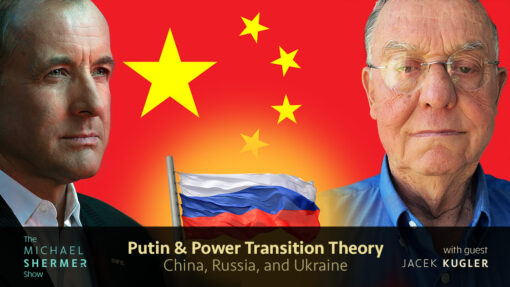
Michael Shermer and Dr. Jacek Kugler, the Elisabeth Helm Rosecrans Professor of International Relations in the Department of Politics and Policy at Claremont Graduate University, discuss Power Transition Theory. According to the theory, developed by Dr. Kugler, an even distribution of political, economic, and military capabilities between contending groups of states is likely to increase the probability of war; peace is preserved best when there is an imbalance of national capabilities between disadvantaged and advantaged nations.
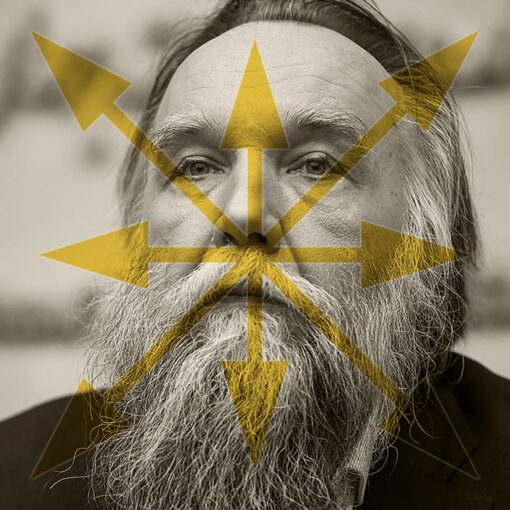
Robert Zubrin takes a renewed look at his 2015 Skeptic article about the Mystical High Priest of Russian Fascism, Alexander Dugin, in light of Putin’s recent, full-scale invasion of Ukraine. It will strike readers as all too prescient.
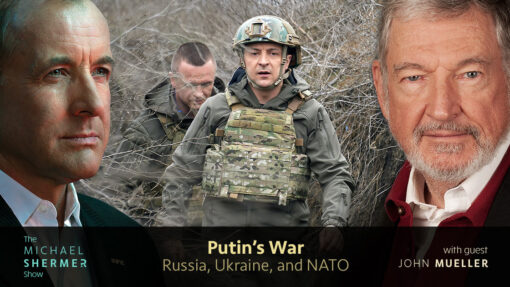
Shermer speaks with renowned Ohio State University political scientist John Mueller about the ongoing crisis in Ukraine and what we might expect from Putin’s Russia in the coming weeks, months, and years, along with Dr. Mueller’s outline for how to end the current conflict and compromise with Putin.
Political scientist and war historian John Mueller argues that Putin’s war in Ukraine could have been avoided and can still be stopped through compromise since NATO was not going to accept Ukraine as a member for decades anyway, and Crimea will be returned to Ukraine about the time Texas is returned to Mexico.
Shermer speaks with renowned Ohio State University political scientist John Mueller, author of The Stupidity of War, about the ongoing crisis in Ukraine and what we might expect from Putin’s Russia in the coming weeks, months, and years, along with Dr. Mueller’s outline for how to end the current conflict and compromise with Putin.
Michael Shermer provides an analysis of Russia’s war on Ukraine. Will sanctions work? Plus, the Skeptic Research Center releases its second report: Who Endorses Race and Gender Conspiracies?
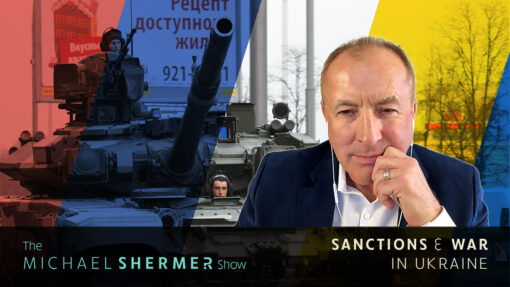
Michael Shermer provides an analysis of Russia’s war on Ukraine. Will sanctions work? This reading is based on his Substack post entitled: “Putin’s Problem: The outlawry of war has forced tyrants to concoct excuses for invading other countries. How should we respond? Evidence shows that outcasting in the form of economic sanctions beats armed conflict.”

















